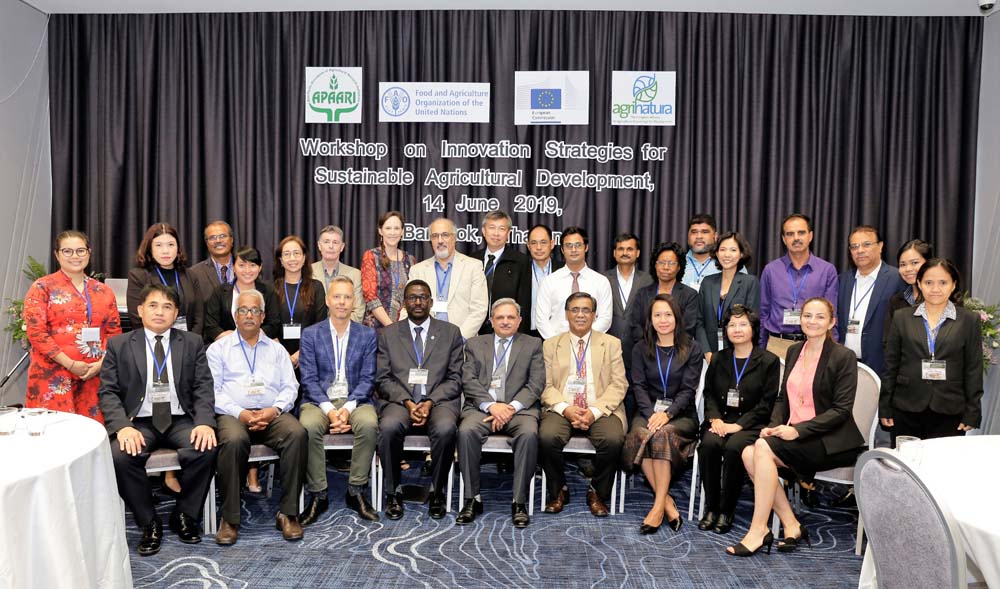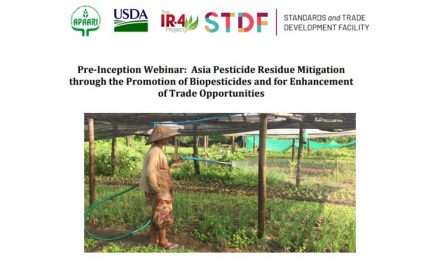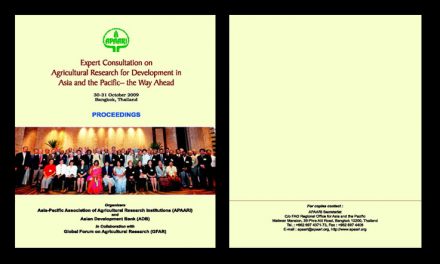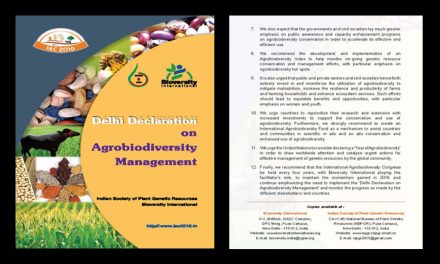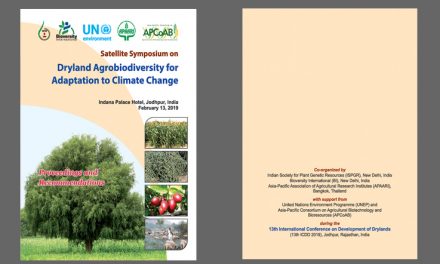On 14 June 2019, APAARI organized a one-day interactive workshop on ‘Innovation Strategies for Sustainable Agricultural Development’ in Bangkok, Thailand, back-to-back with the EC Meeting. It was organized in the context of the Tropical Agriculture Platform (TAP) in collaboration with FAO, and support of Agrinatura and the European Union (EU). It explored current innovative initiatives in food and agriculture, commonalities and differences in innovation strategies of participating institutions, identified priority areas for agricultural innovation to be integrated in the participating organizations’ innovation strategies, and made recommendations for decision makers to be integrated in policy and legal frameworks. Through the use of interactive knowledge-sharing techniques, the meeting also promoted cross-fertilization between the participants to enhance learning and collaboration across the Asia-Pacific region.
A total of 35 participations, including the heads of APAARI’s member and partner organizations representing national agricultural research system (NARS) organizations and institutes, international agricultural research centres, higher education, regional fora, international development organizations, and the private sector, actively engaged in discussions and contributed to the workshop’s outputs.
The workshop was framed around the Agricultural Innovation System (AIS) perspective and participants were encouraged to adopt this mind set throughout the event and beyond. This is because agri-food systems in Asia-Pacific are increasingly transformed by the dynamic interaction of socio-economic and environmental factors, which requires innovation in agricultural and rural development to be based on multi-stakeholder interaction that includes private sector, farmers, and civil society, and cross-sectoral linkages with other areas impacting food and agriculture, including health and commerce.
The Common Framework developed by TAP partners builds on the AIS perspective, which emphasizes that agricultural innovation, as opposed to linear technology transfer models, results from a complex, multi-stakeholder process of interaction. Conceptually, the AIS comprises of research and education, business and enterprise, bridging institutions, and the enabling environment. This framework was fully integrated in the workshop. The discussions took place with these actor groups in the centre, an emphasis on getting the right mix of actors, mechanisms, processes and policies in place, and most importantly the need to build functional capacities (soft skills) to generate and use knowledge, and develop new technologies and business processes. So far, the AIS approach has not been fully reflected in all national policies and capacity development efforts. Through the workshop, APAARI played an important role to initiate such learning and knowledge sharing towards the change in mind sets and behaviours that are shaping the region’s agri-food systems.
The exchange of innovative practices was facilitated through a panel discussion with six key speakers, World Cafe and Peer Review methodologies involving all participants. This consultative and participatory process during the workshop was based on a novel 5-P Framework – Problems, People, Processes, Partnerships and Policies – that APAARI introduced and that helped facilitate focused discussions. A stock of key problems in terms of people, processes, partnerships and policies was taken in the context of AIS, which helped formulate recommendations for policy and decision makers in governments, NARS institutions, higher education, bridging institutions and the private sector to make AIS perform more effectively.
It is envisioned that these recommendations will assist policy and decision makers in integrating the AIS perspective and the need to develop functional capacities at individual, organizational and enabling environment levels, in their mind sets, long-term innovation strategies and policy development. A draft policy brief has been developed and will be shared on the APAARI website shortly.

